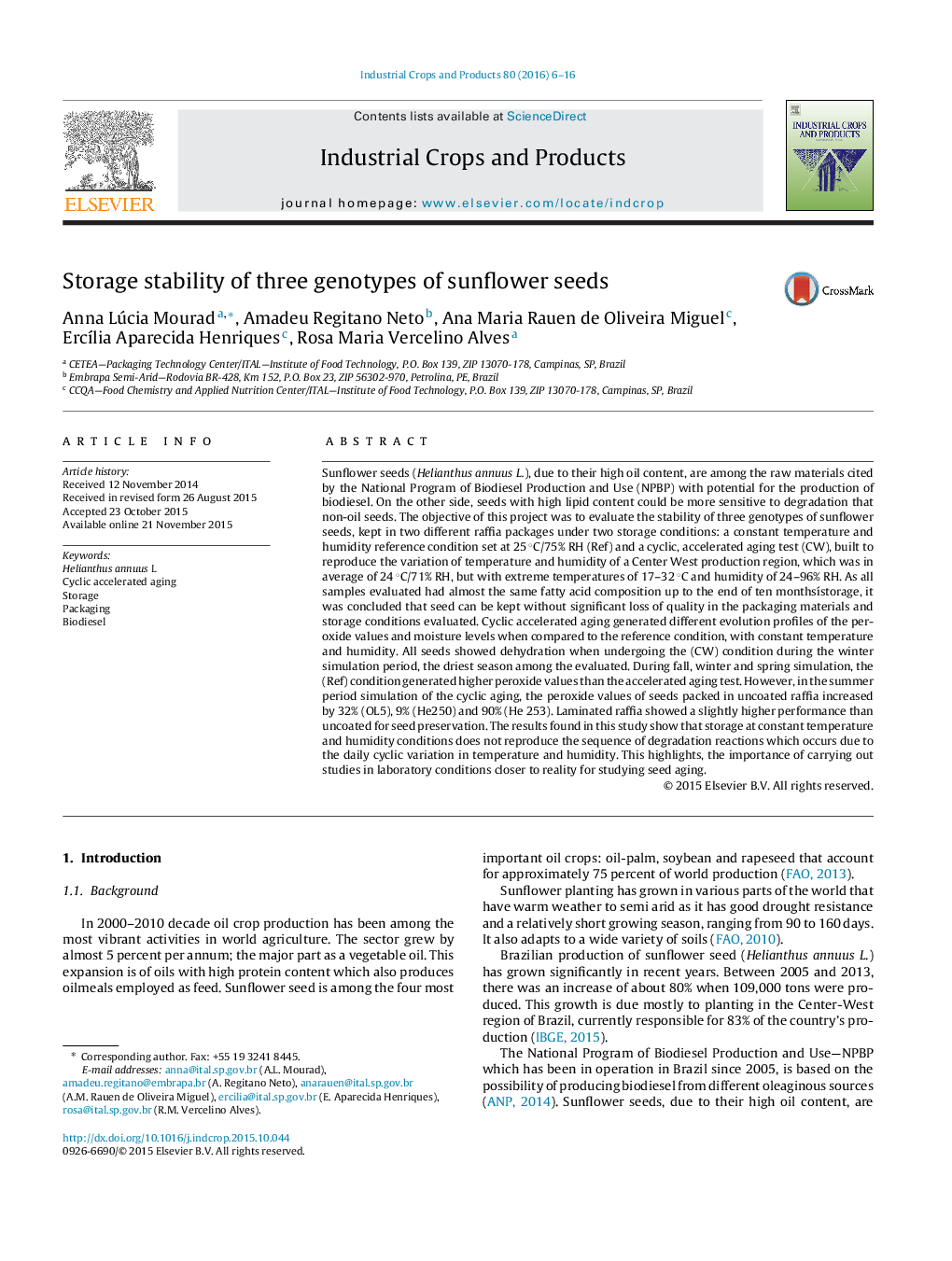| Article ID | Journal | Published Year | Pages | File Type |
|---|---|---|---|---|
| 4512559 | Industrial Crops and Products | 2016 | 11 Pages |
•Three sunflower genotypes with around 43 g/100 g of oil content can be stored at ambient conditions for 10 months without loss of quality for biodiesel industry.•Accelerated test aging with cyclic variation of temperature and humidity, built to reproduce a typical variations of temperature and humidity of a region, leads different degradation mechanisms of sunflower seeds, when compared to constant traditional storage condition.•Summer aging simulation accelerates the peroxide formation to levels well above of the constant storage condition.
Sunflower seeds (Helianthus annuus L.), due to their high oil content, are among the raw materials cited by the National Program of Biodiesel Production and Use (NPBP) with potential for the production of biodiesel. On the other side, seeds with high lipid content could be more sensitive to degradation that non-oil seeds. The objective of this project was to evaluate the stability of three genotypes of sunflower seeds, kept in two different raffia packages under two storage conditions: a constant temperature and humidity reference condition set at 25 °C/75% RH (Ref) and a cyclic, accelerated aging test (CW), built to reproduce the variation of temperature and humidity of a Center West production region, which was in average of 24 °C/71% RH, but with extreme temperatures of 17–32 °C and humidity of 24–96% RH. As all samples evaluated had almost the same fatty acid composition up to the end of ten monthśstorage, it was concluded that seed can be kept without significant loss of quality in the packaging materials and storage conditions evaluated. Cyclic accelerated aging generated different evolution profiles of the peroxide values and moisture levels when compared to the reference condition, with constant temperature and humidity. All seeds showed dehydration when undergoing the (CW) condition during the winter simulation period, the driest season among the evaluated. During fall, winter and spring simulation, the (Ref) condition generated higher peroxide values than the accelerated aging test. However, in the summer period simulation of the cyclic aging, the peroxide values of seeds packed in uncoated raffia increased by 32% (OL5), 9% (He250) and 90% (He 253). Laminated raffia showed a slightly higher performance than uncoated for seed preservation. The results found in this study show that storage at constant temperature and humidity conditions does not reproduce the sequence of degradation reactions which occurs due to the daily cyclic variation in temperature and humidity. This highlights, the importance of carrying out studies in laboratory conditions closer to reality for studying seed aging.
Graphical abstractFigure optionsDownload full-size imageDownload as PowerPoint slide
